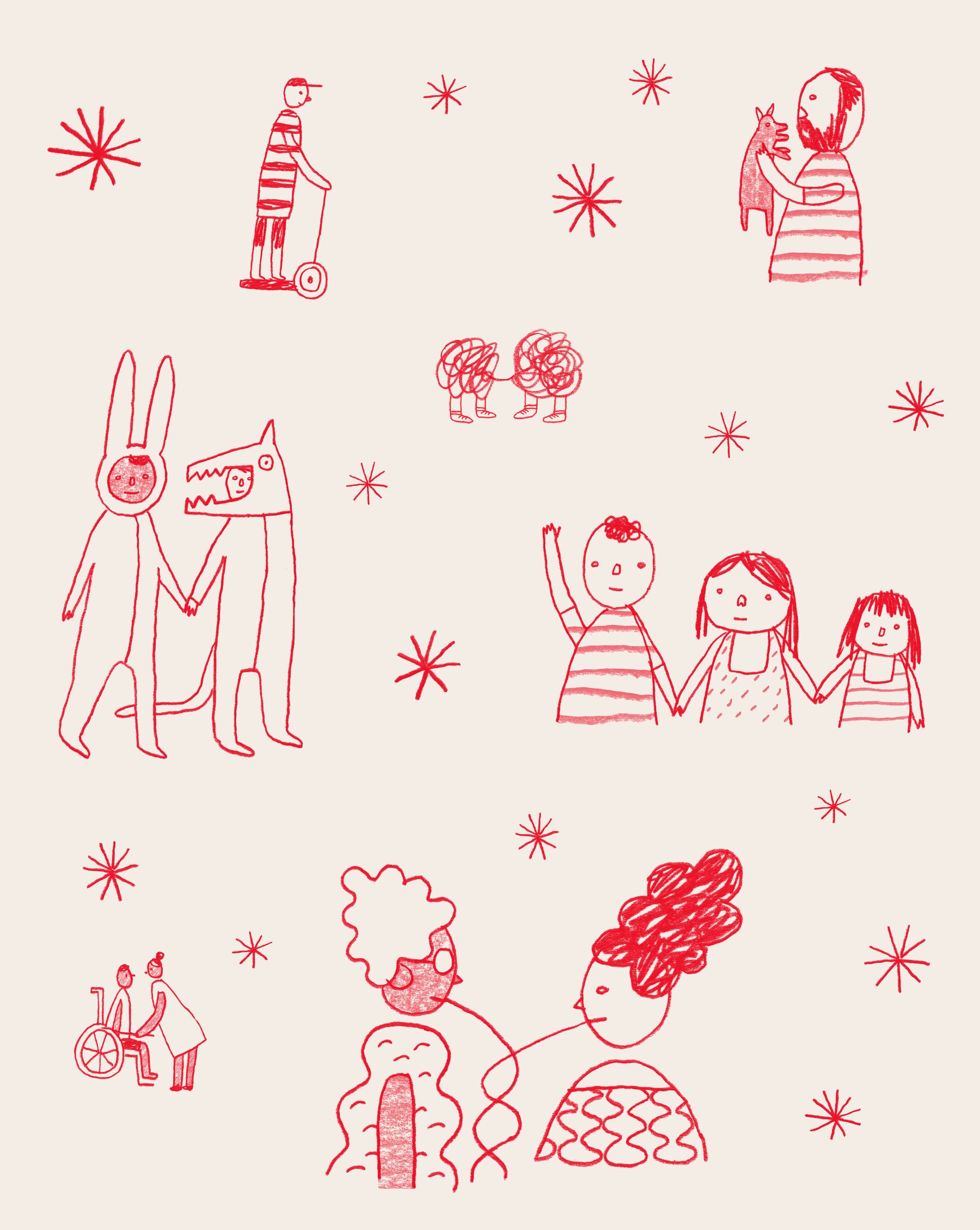Mental & Emotional Support
Video of the Month
A brief lifestyle mini-film showing ordinary and self-caring activities from interacting with a pet to making some coffee and cooking soup.
This video, among others by the same creator, illustrates the value of having a “slow” day here and there, engaging in activities that bring us joy, and accepting that we cannot and should not always be productive.
We are more than just our accomplishments, and those other parts of us that are creative, mischievous, foodies, homebodies, etc. deserve to be nurtured as well.
Today's a Good Day Even Though You Didn't Wake Up Early|How to Make You Feel Better When You Overslept (10:48)
Blogs & Articles
My Built-in Best Friend
I think it’s safe to say that if we took more time to get to know ourselves the way we all deserve to be understood, we’d realize there’s no one better out there for ourselves than ourselves.
The right people could bring so much joy into our lives — experiences and feelings we never could’ve had or felt otherwise — but even they are addendums to our already complete lives.
As my own best friend, these are some of the things I’ve started to do for myself.
Are You Happy? You Decide.
Hey there! It’s time to check in with yourself. Here are some questions—
Answer them in your head, I’ll do them too, and we’ll see how we do!
What’s your favorite color, in general and in clothing?
How long can you stay in a social setting before your energy runs out?
What’s your favorite thing to daydream about?
How do you feel about your life at large right now? When was the last time you reflected on the big picture?
Lastly, what core value is most important for you to possess? How about for a friend or loved one? (Core values are things like justice, kindness, family, wealth, power, stability, etc. They indicate the values which we prioritize, that most strongly motivate our decision-making process. I’ll talk more about this soon.)
Got your answers? If yes, then let’s talk for a bit about the “why” behind these tedious questions and all the seemingly-needless introspection. (NOTE: You can find my answers at the end of the blog.)
The Arduous Task of Getting to Know Yourself
How could we possibly reach new heights in our potential, recognize a sense of meaning in our lives, grow into the people we’ve always aspired to become, all without even understanding our identities just as they are right now? I would liken this to an attempt to follow a map without being aware of our current location. Silly, right?
What I’m trying to say is that I believe we each have immense intellectual, creative and humanitarian potential inside of us, just as theories of self-actualization would suggest. But to be able to experience what it means to be “fully human,” or “beyond just a body taking up space,” we must develop the habit of self-reflection and a genuine curiosity to get to know ourselves, if not for the purpose of growth, then at least in respect to the fact that you are truly wonderful and deserve to be understood.
On that note, here are some self-tested suggestions which you can use for clarity on your strengths and areas of improvement, your goals and fears, your favorites and dislikes, and the many versions of yourself which have represented you at some point, for better or for worse:

My Favorite Resources
-
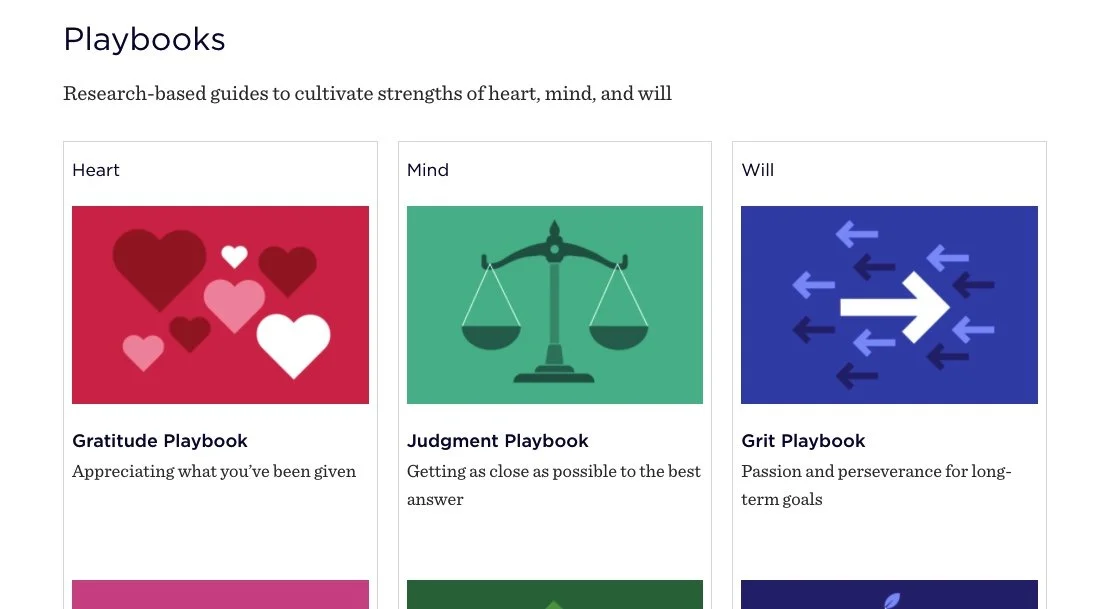
The Character Lab's Online Playbooks With Topics from "Creativity" to "Gratitude"
“Research-based guides to cultivate strengths of heart, mind, and will. Topics include Creativity, Social Intelligence, Self-control and Judgement, among others.
Character Lab is a nonprofit organization that connects researchers with educators to create greater knowledge about the conditions that lead to social, emotional, academic, and physical well-being for young people throughout the country.”
-

Mental Health Webinar Series by the McLean Hospital
“McLean Hospital recognizes the need for reliable and helpful mental health resources. With this in mind, we have dedicated the time of our staff to ensure we are making free resources available for the public and professionals in hopes of promoting healthy individuals and communities.”
Topics include 1) the relationship between diet and mental wellness, 2) child and teen mental health, 3) managing stress and burnout, 4) supporting loved ones with mental health conditions, 5) LGBTQ mental health, etc.
-
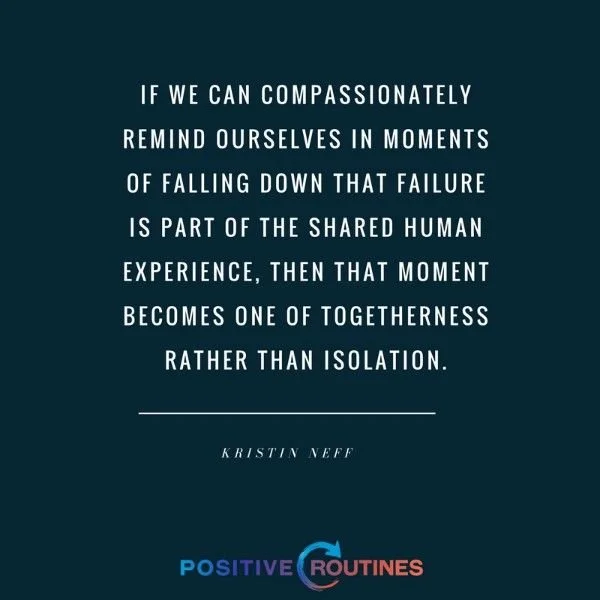
Dr. Kristin Neff's Collection of Guided Self-Compassion Practices & Exercises
“In conjunction with her colleague Dr. Chris Germer, Dr. Kristin Neff has developed an empirically supported training program called Mindful Self-Compassion, which is taught by thousands of teachers worldwide. She is also co-founder of the nonprofit Center for Mindful Self-Compassion.”
Her list of guided exercises include written and spoken meditations guiding individuals through various forms of soothing and motivating self-compassion.
-

Online Unit-by-Unit Lessons in Strengths-Based Resilience
“The Strengths-Based Resilience program is designed to help you develop resilience, defined as the ability to cope with adversity. The program invites you to reflect actively on your experiences that demonstrate various aspects of your resilience. By reflecting back on these experiences, and engaging in other exercises, you will learn skills and strategies to build your resilience.”
Lessons include Resilience, Fixed & Growth Mindset, Cognitive Accuracy, Cognitive Flexibility, Positive Relationships, Meaning & Purpose, etc.
-
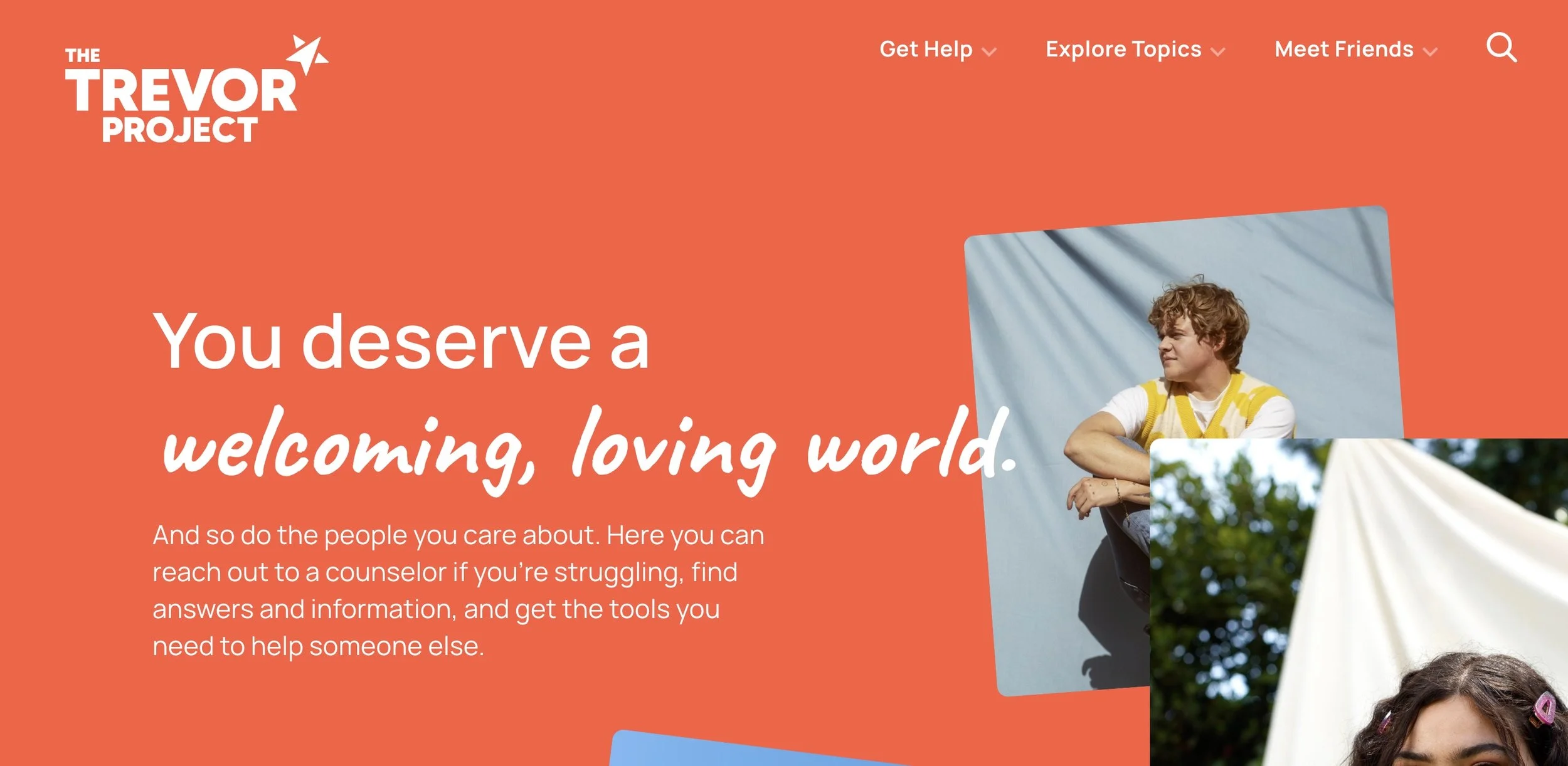
The Trevor Project's Supportive Online Community & 24/7 Access to Trained Counselors for LGBTQ Adolescents
“TrevorSpace is an affirming, online community for LGBTQ young people between the ages of 13-24 years old. With over 400,000 members across the globe, you can explore your identity, get advice, find support, and make friends in a moderated community intentionally designed for you.”
-

Online Unit-by-Unit Lessons in Mindfulness-Based Stress Reduction
“Through this MBSR course, you will learn skills that can increase your ability to:
Cope with stress, pain, and the challenges of everyday life
Deal with disturbing events with grace and composure
Be fully present and alive in this moment
[R]esearch indicates that mindfulness training can have a significant therapeutic effect for those experiencing stress, anxiety, high blood pressure, depression, chronic pain, migraines, heart conditions, diabetes and other ailments. In addition, participants typically report feeling more alive, more "in-tune" with themselves and others.”
-

The Black Dog Institute's Informational PDFs for Learning More About Various Mental Health Disorders
“Our evidence-informed fact sheets are suitable for anyone trying to find out more information about mental health conditions, treatments and wellbeing.”
Topics include symptoms, treatments, causes, and guides about how to manage various mood disorders, as well as information about specific psychological treatments, healthy mental health practices, and how to help our friends if they’re struggling with their mental health.”
-
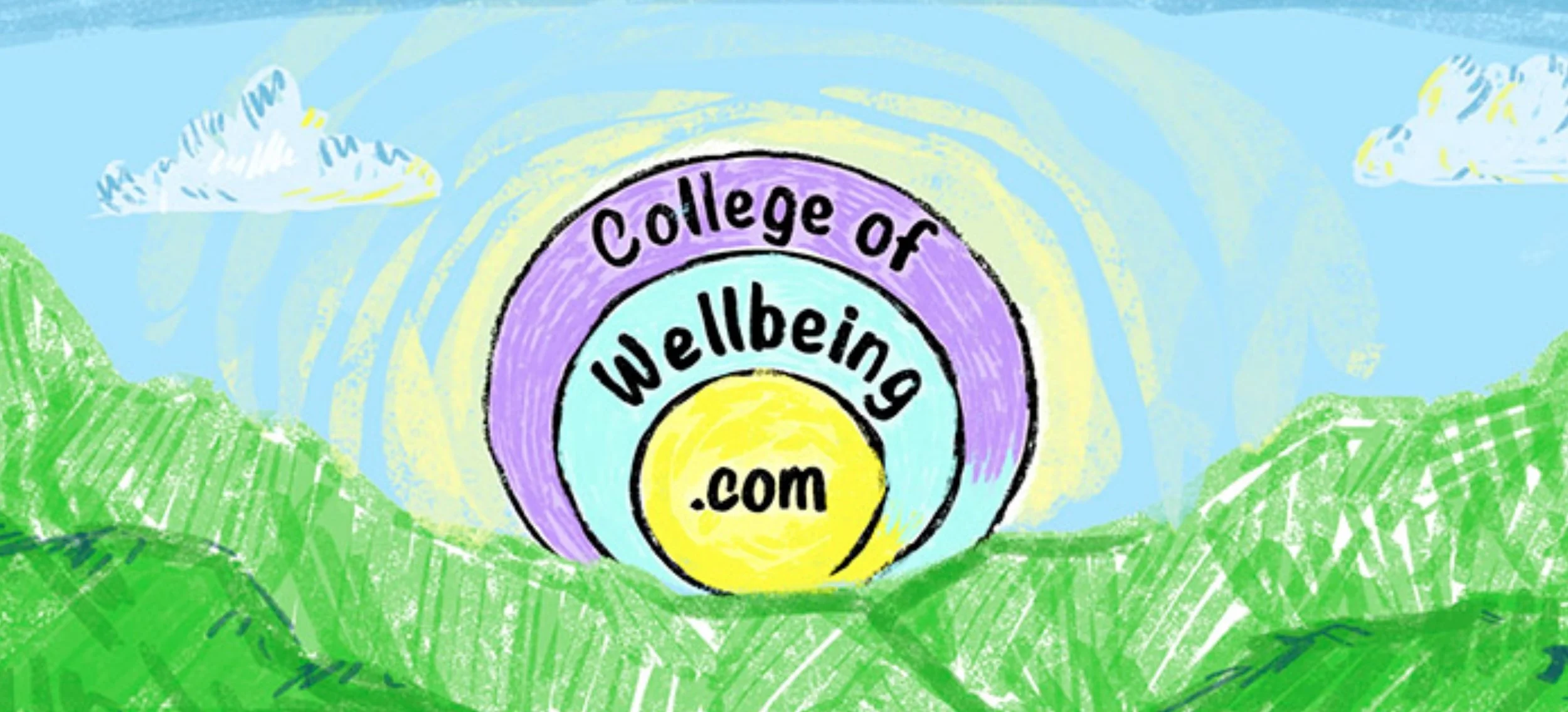
College of Wellbeing's Online Resilience Course during COVID
“A free video-based online course introducing practical resilience tools to help you face and respond to the challenges of our current coronavirus crisis.”
-
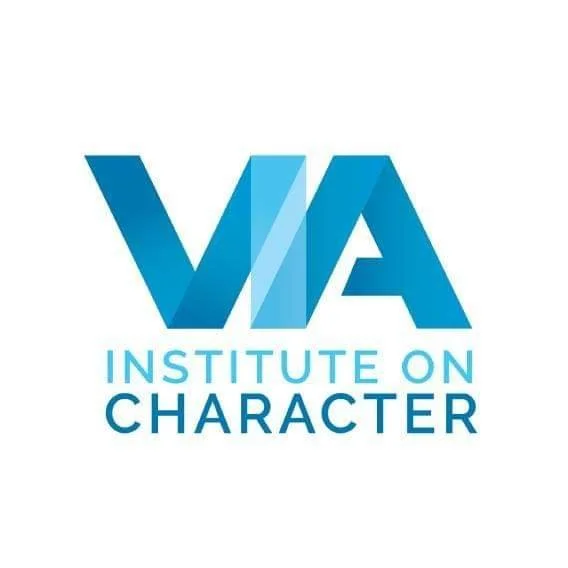
Any of the Self-Assessments on the "Basic Self-Compassion" Page
Learn where you stand now with social-emotional skills so you understand what and how to improve.
Each assessment is derived from research in positive and cognitive psychology, about topics ranging from awe, healthy selfishness and gratitude, to the classification of character strengths.

Relevant Vocabulary
-
“A mood disorder is a mental health class that health professionals use to broadly describe all types of depression and bipolar disorders.
Therapy, antidepressants, and support and self-care can help treat mood disorders.”
— From JHU Medicine
-
“Depression (major depressive disorder or clinical depression) is a common but serious mood disorder. It causes severe symptoms that affect how you feel, think, and handle daily activities, such as sleeping, eating, or working. To be diagnosed with depression, the symptoms must be present for at least two weeks.”
Symptoms include increased fatigue, appetite changes, feelings of despair and intense sadness, suicidal ideation and loss of pleasure in previously enjoyable activities, among others.
— From the National Institute of Mental Health (NIMH)
-
“You might feel anxious when faced with a problem at work, before taking a test, or before making an important decision. But anxiety disorders involve more than temporary worry or fear. For a person with an anxiety disorder, the anxiety does not go away and can get worse over time. The symptoms can interfere with daily activities such as job performance, school work, and relationships.
There are several types of anxiety disorders, including generalized anxiety disorder, panic disorder, and various phobia-related disorders.”
— From the National Institute of Mental Health (NIMH)
-
“Autism spectrum disorder (ASD) is a developmental disorder that affects communication and behavior. Although autism can be diagnosed at any age, it is said to be a “developmental disorder” because symptoms generally appear in the first two years of life. […] People with ASD have difficulty with social communication and interaction, restricted interests, and repetitive behaviors.”
— From the National Institute of Mental Health (NIMH)
-
“Bipolar disorder (formerly called manic-depressive illness or manic depression) is a mental disorder that causes unusual shifts in mood, energy, activity levels, concentration, and the ability to carry out day-to-day tasks.
There are three types of bipolar disorder. All three types involve clear changes in mood, energy, and activity levels. These moods range from periods of extremely “up,” elated, irritable, or energized behavior (known as manic episodes) to very “down,” sad, indifferent, or hopeless periods (known as depressive episodes). Less severe manic periods are known as hypomanic episodes.”
— From the National Institute of Mental Health (NIMH)
-
“There is a commonly held misconception that eating disorders are a lifestyle choice. Eating disorders are actually serious and often fatal illnesses that are associated with severe disturbances in people’s eating behaviors and related thoughts and emotions.
Preoccupation with food, body weight, and shape may also signal an eating disorder. Common eating disorders include anorexia nervosa, bulimia nervosa, and binge-eating disorder.”
— From the National Institute of Mental Health (NIMH)
-
“Post-traumatic stress disorder (PTSD) is a disorder that develops in some people who have experienced a shocking, scary, or dangerous event. […]
Nearly everyone will experience a range of reactions after trauma, yet most people recover from initial symptoms naturally. Those who continue to experience problems may be diagnosed with PTSD. People who have PTSD may feel stressed or frightened, even when they are not in danger.”
— From the National Institute of Mental Health (NIMH)
-
“Therapists offer many different types of psychotherapy. Some people respond better to one type of therapy than another, so a psychotherapist will take things like the nature of the problem being treated and the person’s personality into account when determining which treatment will be most effective.”
Cognitive Behavioral Therapy (CBT)
Dialectical Behavior Therapy (DBT)
Eye Movement Desensitization And Reprocessing Therapy (EMDR)
Exposure Therapy (type of CBT)
Interpersonal Therapy
Mentalization-Based Therapy
Psychodynamic Psychotherapy
Therapy Pets”
Learn more about each type of therapy at this page by the National Alliance on Mental Illness.
-
“A traumatic event is a shocking, scary, or dangerous experience that can affect someone emotionally and physically. Experiences like natural disasters (such as hurricanes, earthquakes, and floods), acts of violence (such as assault, abuse, terrorist attacks, and mass shootings), as well as car crashes and other accidents can all be traumatic. […]
Responses to trauma can be immediate or delayed, brief or prolonged. Most people have intense responses immediately following, and often for several weeks or months after a traumatic event. These responses can include:
Feeling anxious, sad, or angry
Trouble concentrating and sleeping
Continually thinking about what happened”
— National Institute of Mental Health (NIMH)
-
Anxiety attacks and panic attacks share a lot of symptoms, including dizziness, shortness of breath, a headache, and shaking or trembling. However, they are different in several key ways.
“Anxiety is usually related to a stressful or threatening event, but panic attacks are not always caused by stressors and most often happen out of the blue.
Anxiety can be mild, moderate, or severe. On the other hand, panic attacks mostly involve sudden, disruptive, and severe symptoms.
The body’s fight or flight response takes over during a panic attack, and physical symptoms are much more intense than anxiety symptoms.”
— From Highland Springs Clinic
-
“A personality disorder is a type of mental disorder in which you have a rigid and unhealthy pattern of thinking, functioning and behaving. A person with a personality disorder has trouble perceiving and relating to situations and people. This causes significant problems and limitations in relationships, social activities, work and school.
In some cases, you may not realize that you have a personality disorder because your way of thinking and behaving seems natural to you. And you may blame others for the challenges you face.
Personality disorders usually begin in the teenage years or early adulthood. There are many types of personality disorders. Some types may become less obvious throughout middle age.”
— From the Mayo Clinic
-
“Many types of mental health care professionals can help you achieve your recovery goals. These professionals work in inpatient facilities, such as general hospitals and psychiatric facilities, and outpatient facilities, such as community mental health clinics, schools and private practices.
Psychologists (PhD, PsyD)
Counselors, Clinicians, Therapists (MA, MS, LPC, LMFT, LCADAC)
Clinical Social Workers (LICSW, LCSW, ACSW)
Psychiatrists, Primary Care Physicians (MD, DO)
Psychiatric or Mental Health or Family Nurse Practitioners (MS, PhD)
Psychiatric Pharmacists (PharmD)”
Learn more about each type of mental health professionals at this page by the National Alliance on Mental Illness.
More general social, emotional and mental health vocabulary can be found on the “Basic Teen Self-Compassion” page!
— THREE TAKEAWAYS —
Final Recap
1. Self-Awareness & introspection
No one knows us better than we know ourselves.
While many people consult with psychiatrists and therapists for mental health guidance, ultimately the job of a mental health professional is usually to empower us with the tools we need to manage unhealthy symptoms and adopt healthy mental and emotional practices.
While there are certain health factors beyond our control, we still have the ability to improve our mental wellbeing by reflecting on personal areas of improvement (ex: self-criticism, healthy conflict-resolution, time management, etc.) and using available resources to adopt healthy skills for our social-emotional toolboxes.
Let’s do whatever we can to get to know ourselves and meet our own health needs!
2. Self-Compassion
Though self-compassion is not a “cure-all,” the additional strength and energy we gain from being self-compassionate is irreplaceably healing.
Don’t let your worries about self-compassion, such as the notion that it is weak or demotivating, keep you from switching out your harsh inner-critic with positive self-talk.
It is research-proven that having a compassionate and understanding voice in our heads to encourage our progress; empathize with our mistakes; push us to do better next time; and remind us that it is okay to be imperfect, is beneficial to our motivation, mood, life satisfaction, relationships, and physical health.
Just as you can uplift and care for your friends, you are capable of being a friend to yourself!
3. Navigating mental health issues
If you are currently dealing with or have just been diagnosed with a mental health disorder, know that you will find support online and around you, and can still lead a content and meaning-filled life.
You are not alone in your struggle. Globally, one in seven 10- to 19-year-olds experiences a mental disorder, according to the National Institute of Mental Health.
Your friends, loved ones, and thousands of healthcare workers who spend their lives working on mental health research, interventions and treatments, are rooting for you.
You matter, and your health matters! I hope that the resources on this website have been helpful to you in managing your health.
Important Phone Numbers
National Suicide Prevention Hotline (website)
Free and confidential emotional support to people in suicidal crisis or emotional distress 24 hours a day, 7 days a week in the United States.
Call 1-800-273-8255
Crisis Text Line
In crisis and need to talk to someone?
Text HOME to 741741 to reach a volunteer Crisis Counselor.
SAMHSA’s National Helpline (website)
Free, confidential, 24/7, 365-day-a-year treatment referral and information service (in English and Spanish) for people facing mental and/or substance use disorders.
Call 1-800-662-HELP (4357)
OTHER: Getting Help During a Mental Health Crisis
Identify your sources of support.
Assess your situation.
Get the help you need.
— More detailed steps from Kaiser Permanente’s webpage
